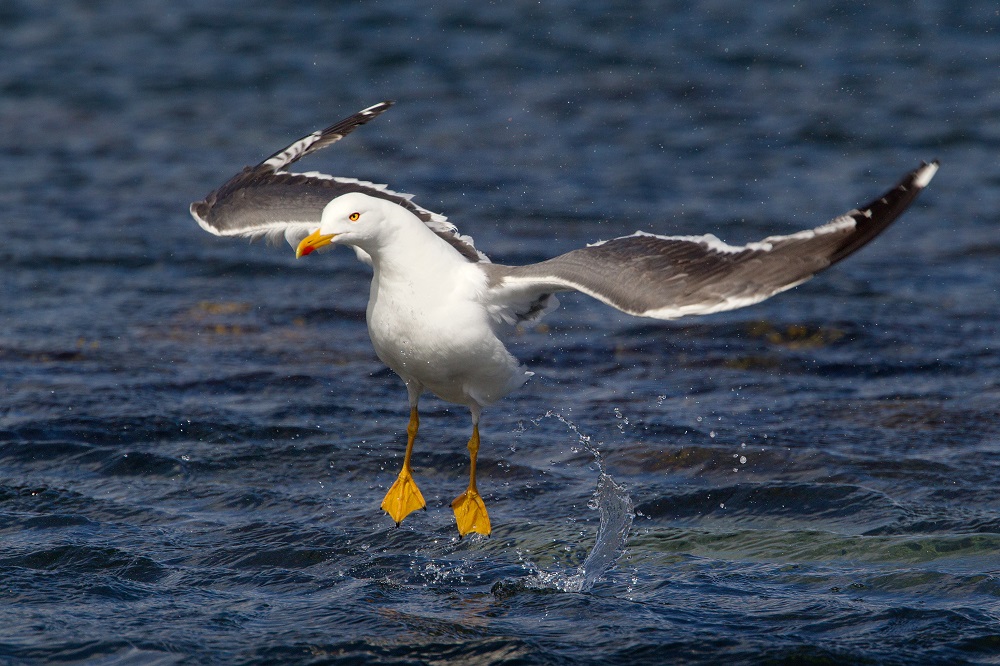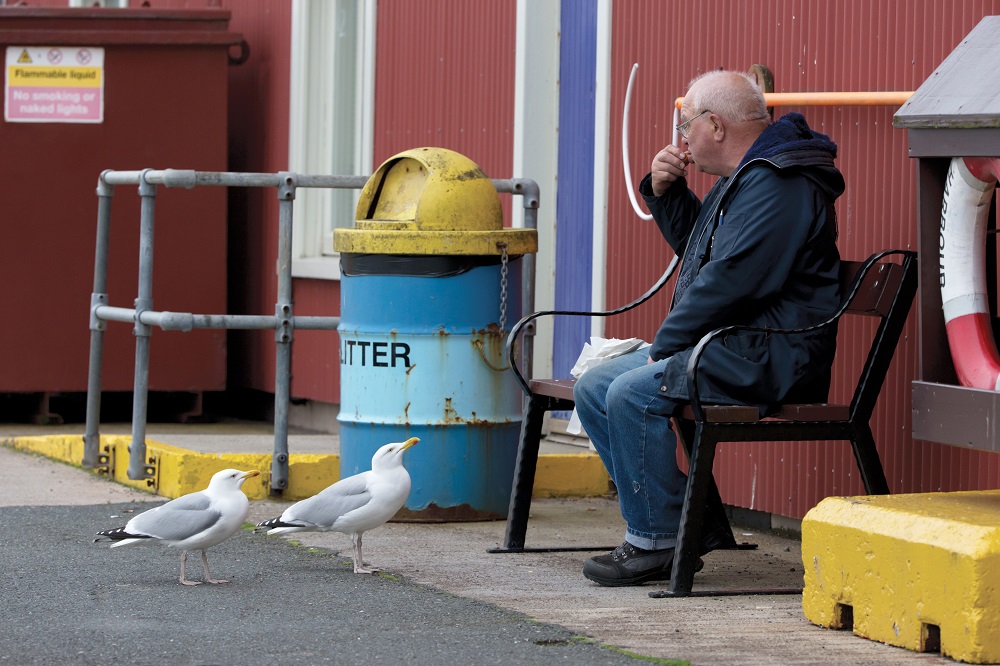Save the seagull! Swansea man who saw sea bird impaled on spike collects 37,000 name petition

Richard Youle, local democracy reporter
A man who saw a herring gull impaled on rooftop spikes in Swansea is calling for a review of such deterrents, and says he is amazed by the support he has received.
Despite the birds being unpopular with some for being noisy and snatching chips, more than 37,000 people have signed Patrick Driscall’s online petition to date.
Mr Driscall, of Sketty, said he felt herring and lesser black-backed gulls, whose populations are declining, got a bad press and that there was a lack of research about the effects of rooftop deterrents on them.
He was also concerned that other bird species were getting caught up in netting and metal spikes.
“I’ve often seen pigeons and jackdaws trapped in netting on industrial buildings,” he said.
Patrick Driscall said less harmful gull deterrents should be explored and that people should take into account that human activity had impacted on the birds’ normal habitats, encouraging them into towns and cities.
“I understand that people get concerned about the noise gulls make, and each year there are stories about them grabbing ice creams, but it’s minor really in the grand scheme of things,” said the 57-year-old.
“There is a biodiversity crisis, and I think we have found out during Covid that nature is a real solace to have surrounding us. It all needs to be care for and respected.”
Amber list
Patrick Driscall said he had never started a petition before and that the number of people who had signed his was a welcome surprise.
“I am amazed,” he said. He has requested a meeting with Swansea MS Julie James to discuss the petition.
Viola Ross-Smith, of the British Trust for Ornithology, said the UK was home to around 12% of the world’s herring gull population. The birds are on the conservation red list, denoting the highest conservation priority.
Around 40% of the world’s lesser black-backed population lives in the UK. They are on the the amber list, one down from red.
“I’m personally heartened to hear so many people have signed the petition,” said Dr Ross-Smith.
“I think it would be good if we could learn to be a bit more tolerant.”

All species of wild birds, their nests and their eggs are protected. Anyone wishing to destroy a gull nest needs a licence from Natural Resources Wales (NRW).
Dr Ross-Smith said some people put up spikes and netting outside the nesting season, leading to problems when gulls returned the following year to breed.
She said: “It’s difficult to prove and enforce the destruction of nests.”
She said Skomer and Skokholm, off the coast of Pembrokeshire, have experienced low breeding success rates in recent years, partly because fishermen were discarding less fish.
She added that gulls’ dune habitats had been encroached on, with the result that urban areas – particularly those with plenty of available food – had become more important for them.
“They are adaptable and opportunistic,” she said.
Asked if there were less harmful deterrents than netting and spikes, she replied: “It’s tricky. The best way not to attract them is not to feed them.”

‘Painful’
The Welsh Government said all new installations of spikes and nets would be subject to planning regulations.
A spokeswoman said: “It is important we avoid harming wildlife wherever possible.
“In exceptional circumstances it may be necessary to prevent birds nesting and roosting in sensitive areas but focus should be on reducing the availability of waste food providing green space and traditional nesting and roosting sites so a range of species can flourish.”
Mr Driscall said he had been contacted by a pest control operator in Scotland who had found more than 100 pigeons, 20 gulls and even a swift killed by rooftop netting.
“Simply having a gull or other bird clattering about on your roof, nesting or squawking excitedly is not a reason to cause their painful death and I think it’s absolutely high time for a review,” he said.
Support our Nation today
For the price of a cup of coffee a month you can help us create an independent, not-for-profit, national news service for the people of Wales, by the people of Wales.







Totally agree….. Yes there are gulls on my roof…… I’d miss our gulls and the sound of the coast.